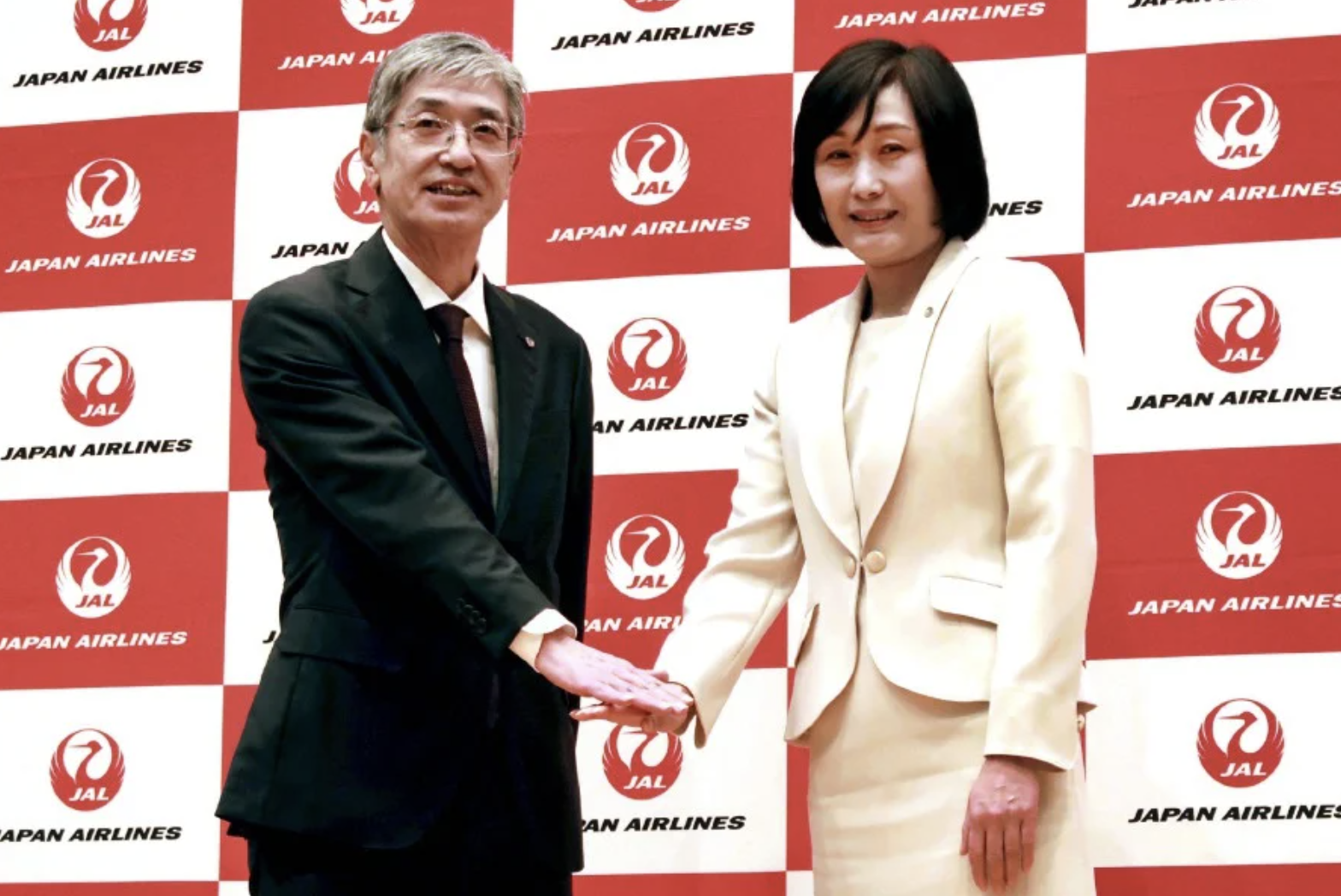Japan Airlines has appointed its first female president and CEO, Mitsuko Tottori. The historic appointment of Mitsuko Tottori as the first female president and CEO of Japan Airlines is a beacon of hope, marking the first time in seven decades that a woman has led the flight company.
Hiring Tottori as the newest CEO has also boosted Japan Airlines to the list of Japanese companies led by women, less than one per cent. Unlike most business leaders, Tottori is new to the corporate sector and has climbed the ranks since her career as a cabin crew member.
Tottori, now aged 59, started working for Japan Airlines as a cabin crew member in 1985. Thirty years later, the newly appointed CEO was promoted to the senior director of cabin attendants.
Her rise to CEO sent shockwaves through the industry, with Japanese news outlets using headlines that ranged from “no way!” and “unusual” to “first woman” and “first former flight attendant.”
Within the company, her appointment was met with a mix of surprise, excitement, and pride, reflecting the significance of this milestone.
“I don’t think of myself as the first woman or the first former flight attendant. I want to act as an individual, so I didn’t expect to get this much attention,” Tottori told the BBC. “But I realise the public or our employees don’t necessarily see me like that.”
Seven of the last 10 Japanese Airline CEOs were educated at the nation’s top university, a trend that reflects the gender disparity in educational opportunities. Tottori, however, obtained a degree from a less prestigious junior college attended by women, highlighting the need for equal access to education for women.
In response to her education contrast, Tottori added: “It is not just about the corporate leaders’ mindset, but it is also important for women to have the confidence to become a manager.”
Tottori’s appointment is not just a personal achievement, but a call to action. She hopes her success will embolden other women to overcome their fears and strive for leadership roles. This news comes after the Japanese authorities have been making concerted efforts to increase the number of female leaders for almost a decade.
These initiatives include promoting gender diversity in corporate boards, providing leadership training for women, and implementing policies to support work-life balance. Regionally, in Asia, Japan is listed as the worst nation for gender parity, falling behind Myanmar and Fiji.
Regarding gender equality in business, according to the World Economic Forum’s Global Gender Gap Index 2023, Japan was placed far behind other Group of Seven developed nations and dropped nine places between 2022 and 2023.
This is due to a variety of factors, including cultural norms, lack of support for working mothers, and gender bias in hiring and promotion practices. Out of the 146 nations in the index, Japan ranked at 125.
In an interview with CNN in Tokyo, Tottori said she hopes her progression to CEO will inspire other women to set their sights on leadership roles.
“Some female employees are struggling with their career steps or going through life events. I hope I can give them the courage or push them to take their next step after seeing my appointment as president,” Tottori explained.
“I hope that Japan will soon become a place where people are not surprised when a woman becomes a president.”
“We do want to increase the number of (women) managers seriously, and more than that, I think it’s important that women themselves want to be active, so I hope to see more and more of (them) in the future,” she added.







